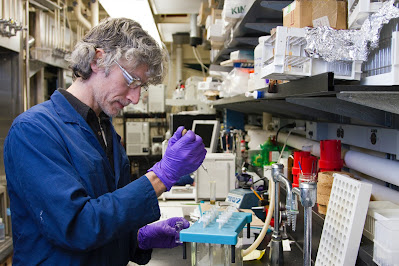In the realm of science and technology, few frontiers hold as much promise and intrigue as genetic engineering and biotechnology. With each passing day, these fields are evolving at an astonishing pace, revolutionizing everything from medicine to agriculture.
1. Genome Editing - Rewriting the Code of Life
The emergence of CRISPR-Cas9 technology has opened the doors to precise genome editing. This revolutionary tool allows scientists to target and modify specific genes, offering potential solutions for genetic disorders and diseases.
2. Designer Babies - Ethical Considerations and Advancements
Advancements in genetic engineering have led to discussions about the possibility of designing babies with specific traits. While this raises ethical questions, the technology's potential impact on disease prevention and health enhancement cannot be ignored.
3. Synthetic Biology - Crafting Life from Scratch
Synthetic biology involves designing and constructing biological systems from scratch. This field holds potential in areas like biofuels, sustainable materials, and even the creation of synthetic organisms.
4. Biotechnology in Medicine - The Promise of Personalized Treatment
The marriage of biotechnology and medicine has given rise to personalized treatments tailored to an individual's genetic makeup. From gene therapies to personalized cancer treatments, biotechnology is transforming the landscape of healthcare.
5. Agricultural Advancements - Feeding the World Sustainably
Biotechnology is reshaping agriculture through genetically modified organisms (GMOs) that offer increased crop yields, pest resistance, and nutritional enhancement. These innovations have the potential to address global food security challenges.
6. Bioprinting - Crafting Tissues and Organs
The field of bioprinting leverages 3D printing technology to create functional human tissues and organs. This breakthrough has profound implications for organ transplantation and regenerative medicine.
7. Neurotechnology - Unlocking the Secrets of the Brain
Advancements in neurotechnology enable us to better understand the complexities of the human brain. From brain-computer interfaces to deep brain stimulation, these innovations hold potential for treating neurological disorders.
8. Environmental Biotechnology - Healing the Planet
Biotechnology is playing a pivotal role in addressing environmental challenges. Innovations include bioremediation, where microorganisms are used to clean up pollutants, and bioenergy production from waste.
9. Nanobiotechnology - Exploring the Nanoscale World
Nanobiotechnology merges nanotechnology and biology, enabling the creation of tiny devices and structures for medical diagnosis, drug delivery, and disease treatment.
10. Regulatory Challenges and Ethical Considerations - Balancing Innovation and Responsibility
As genetic engineering and biotechnology progress, the need for responsible oversight becomes paramount. Striking a balance between innovation and ethical considerations is crucial to harnessing these advancements for the greater good.
Final Thoughts
The ever-evolving landscape of genetic engineering and biotechnology is a testament to human ingenuity and our insatiable curiosity.
From unraveling the mysteries of life's building blocks to reshaping entire industries, these advancements hold the key to a future where scientific boundaries are continually redefined.
Edited by Shivam Sharma



.jpeg)






.jpeg)

0 Comments